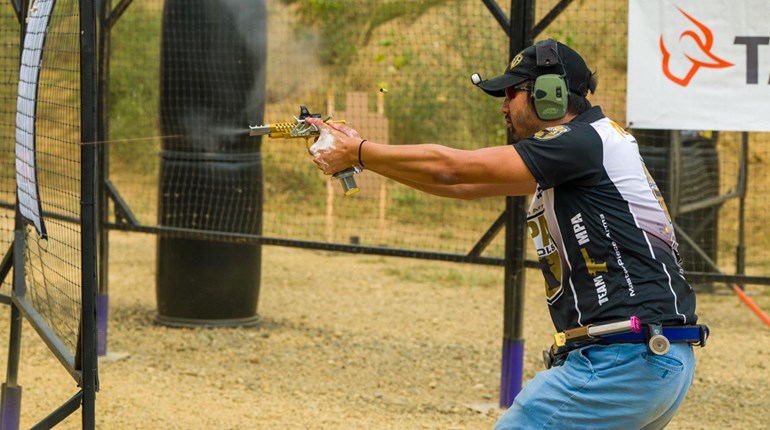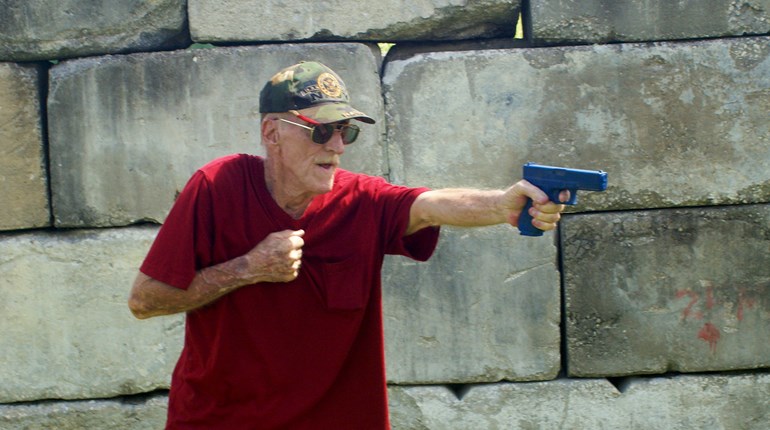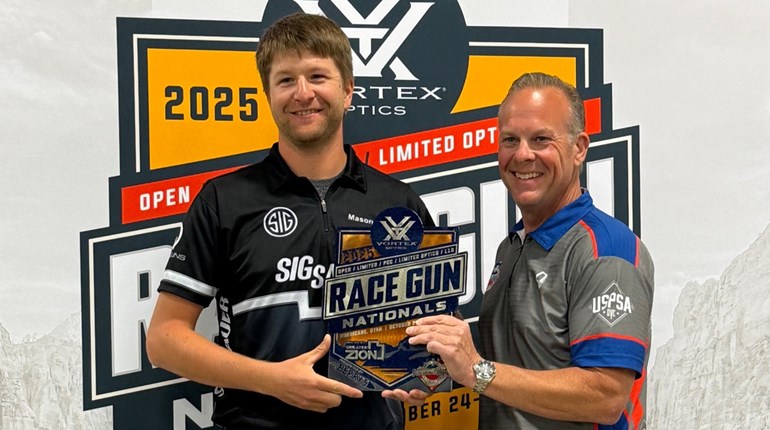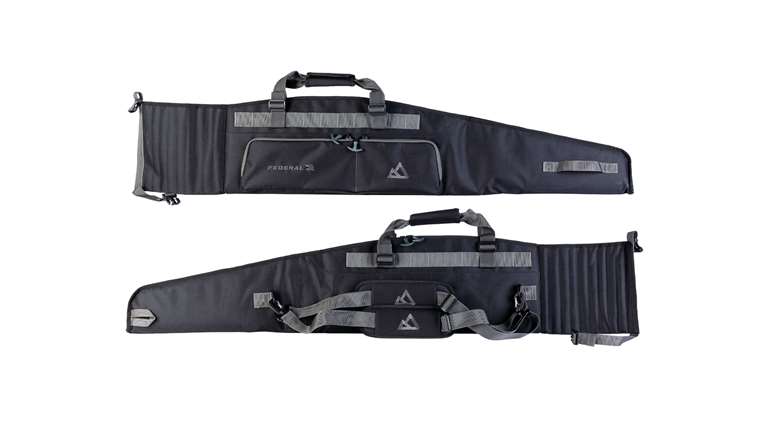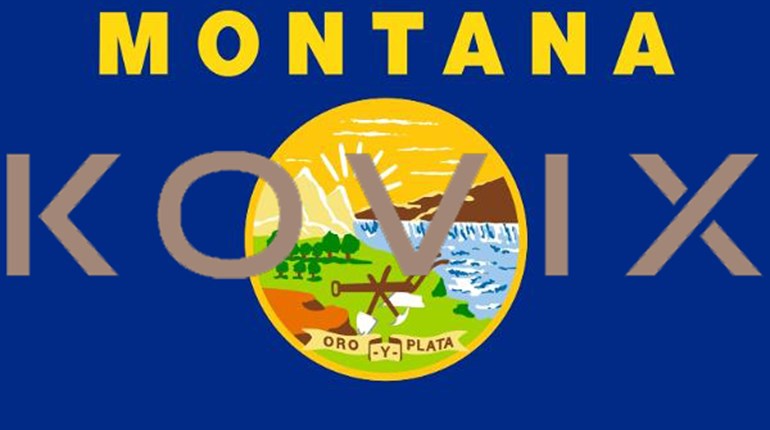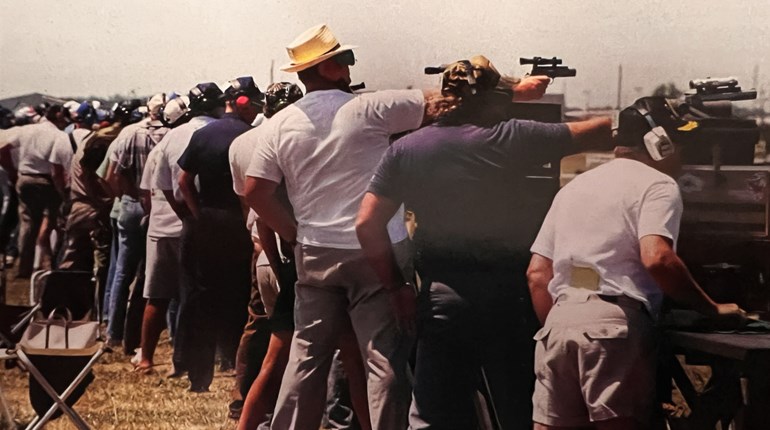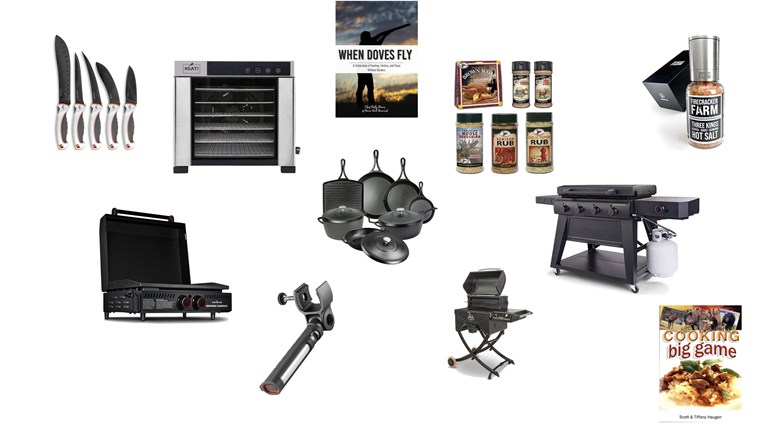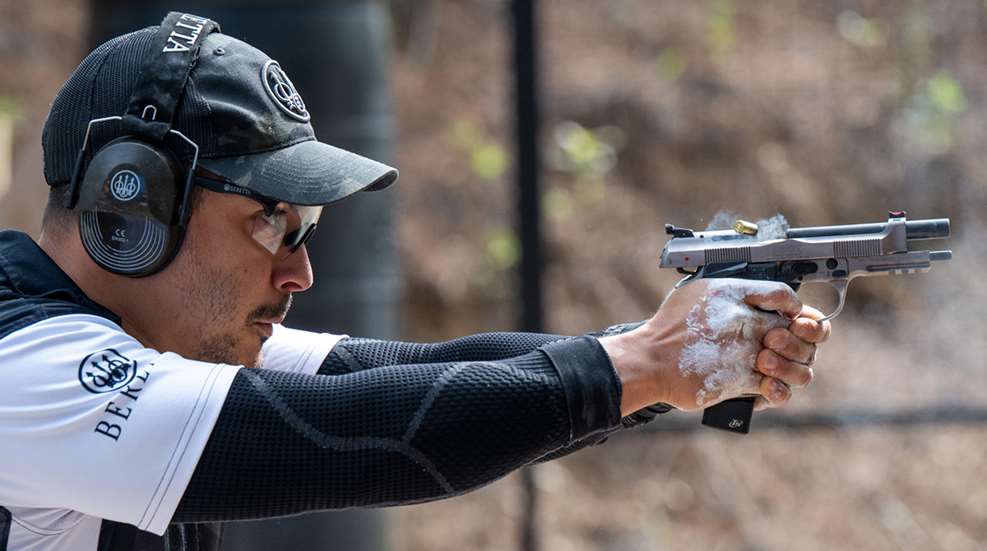
The first Georgia Peach Classic match (a.k.a. “The Peach”) held at River Bend Gun Club in Dawsonville, Georgia, from April 24-27 was a huge success, and is likely to be a “must-attend” match on shooter schedules in the future.
Based on comments at the match, the many unsolicited emails and results from a post-match questionnaire, it sounds like Match Director Scott Hauswirth and his team put together a winner. I was fortunate enough to be the Range Master for the match, and had a great time there. The match was exceptionally well planned and executed, with great staff and stages (and surprisingly good weather).
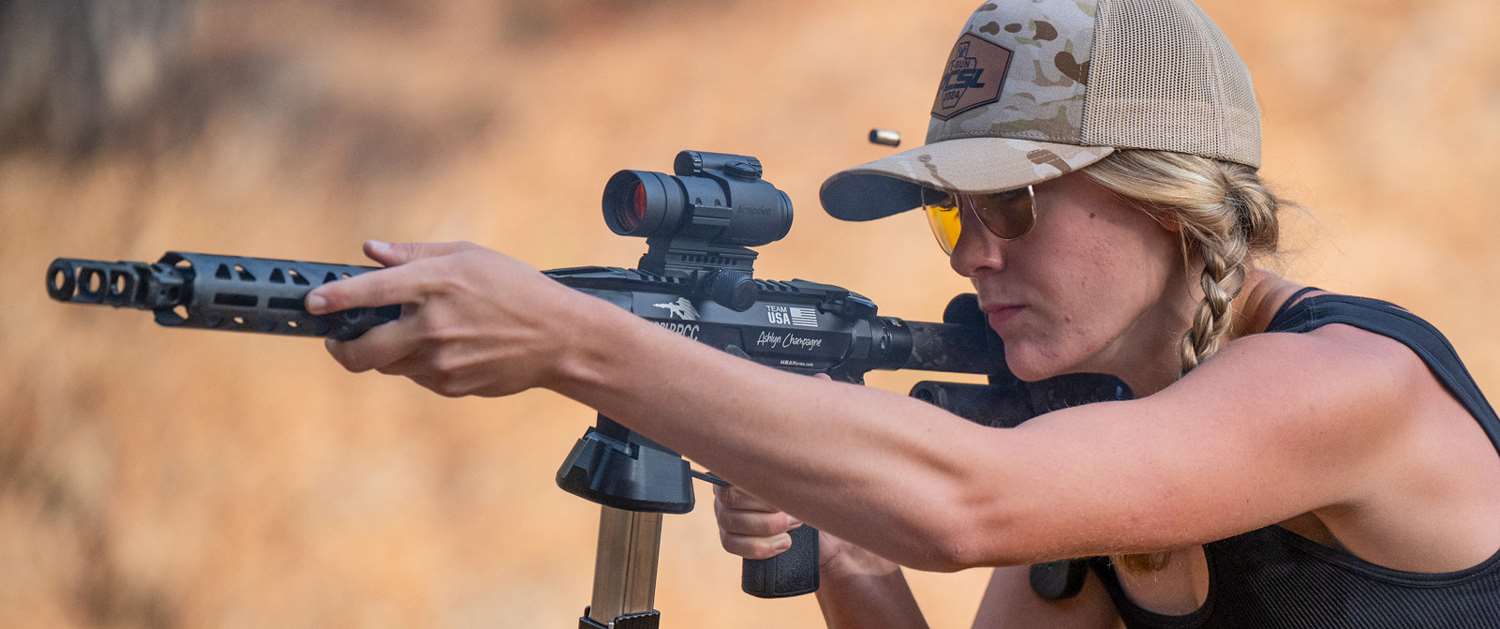
THE VENUE
River Bend Gun Club is a gorgeous 397-acre wooded property in the hills near Dawsonville, Georgia. This “Member-owned/Board of Directors-managed” facility hosts a number of shooting sports besides USPSA, including a 600-yard rifle range.
The 11 “Cowboy Hill” action bays we used for the match represented only a small portion of the overall range complex. The linear way that these bays are constructed along a slight ridgeline presented a little problem with flow, where if we had run the stages in the same sequence as the bay numbers (one through 11) we would have had a 12-minute walk from bay 11 back to bay one.
The solution was to number the stages so that we skipped every other bay, and essentially shot stages one through five (plus chrono) moving from west to east and then stages six through ten moving from east to west as depicted in the match diagram. Although I was initially dubious of this plan and feared confusion on the part of shooters, it worked smoothly and ensured an even flow and no “long walks” from one stage to the next.
THE STAFF
Match Director Scott Hauswirth has a service industry background. A former chef turned hotel manager and now in real estate, he leans hard toward customer service. He pushes the idea of taking care of “our guests” (shooters), and spends time encouraging his staff to focus on challenging the status quo and exceeding expectations.
Assistant Match Director and Stats Chief Camille Brown provided a grounding balance and kept things moving smoothly. Most of the staff for this match were locals to River Bend, and fully embraced the idea of being positive and upbeat with the shooters. This comes from the structure and consistency that is applied to their regular monthly matches. Each month, their match brings 100-150 registered shooters and anywhere from seven to nine stages. Each squad has three embedded Range Officers, with one assigned to be the Chief Range OFficer of the squad. They shoot with the squad and share the timer/pad duties. This improves match flow, scoring consistency, safety and the mindset of hospitality at the match.
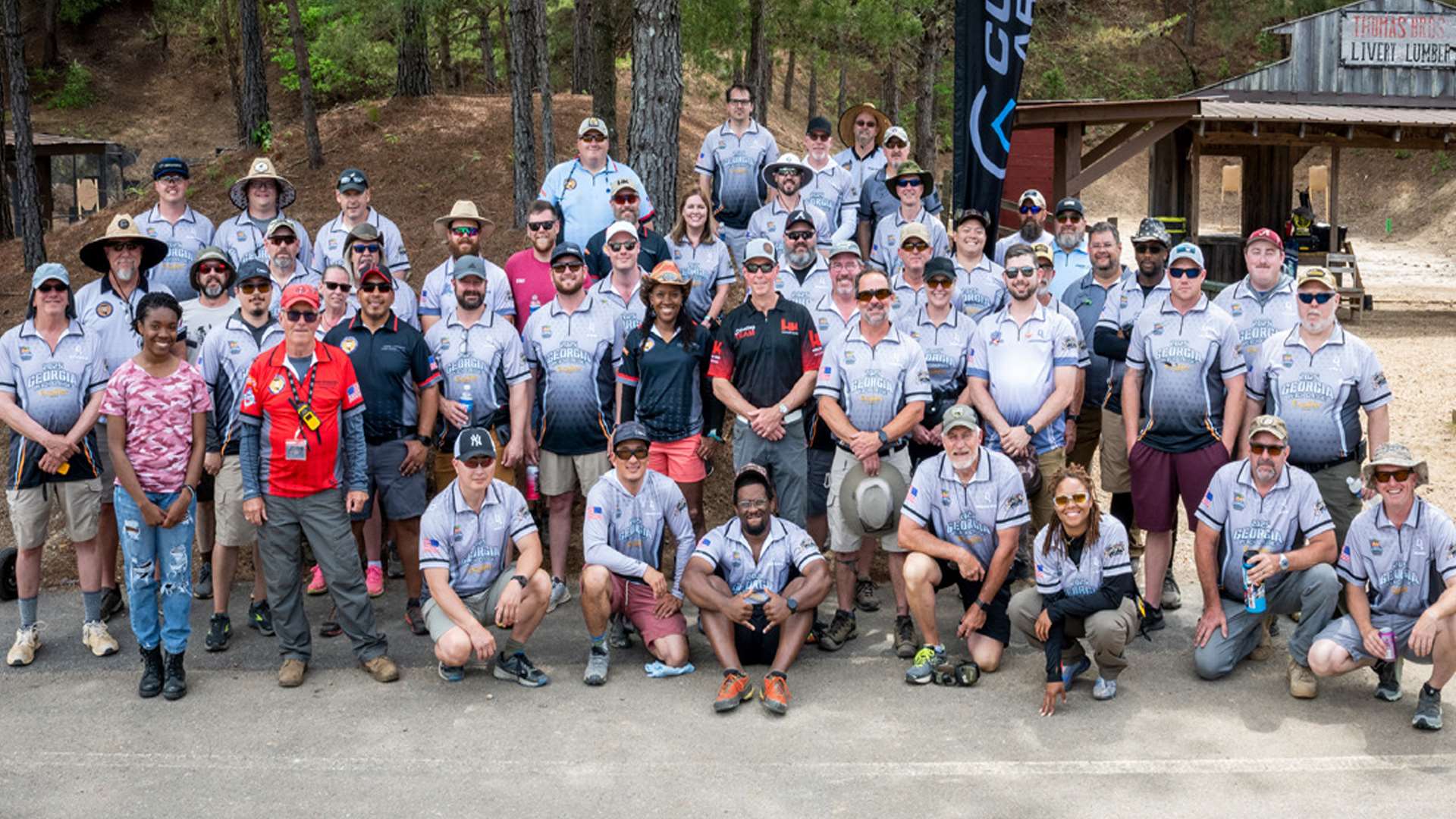
The Match Director hosts a Range Officer video call a week before every monthly match. In addition to going over assignment and stages, he discusses topics from the NROI podcasts, QoM’s, blog posts, rule and org changes, plus any recent notable experiences.
There were a handful of out-of-towners on the staff besides myself: Mike Howell and Jim Killoran came up from Tampa, Drew Coleman came from Dothan to run the Chrono stage and a few others came from out of state to help out. Our consensus was that the local staff was solid and professional, and served the shooters a fun, fair and challenging match.
HOSPITALITY INNOVATIONS
One of the unique aspects of this match was the creation of a Director of Hospitality and team. In addition to serving most of the normal Quartermaster functions, Derek Giddings and his team were the focal point for going beyond the norm of customer service. Whether by briefing individual shooters on range layout or delivering meals (and ice cream) to shooters, they personified the stated goal of ensuring a positive experience for the shooter.
Another extra was the photography team of Chris Jacobs and Caitlin Brown, who not only took thousands of photos available for free download to the shooters, but provided video of every shooter from multiple static cameras while shooting stage 10.
THE MATCH
The match schedule had a small admin group shoot on Thursday, the staff shoot on Friday, two flights on Saturday (a.m. squads starting at 7:30 and p.m. squads starting at 1:30), then an a.m. flight starting at 8:30 on Sunday.
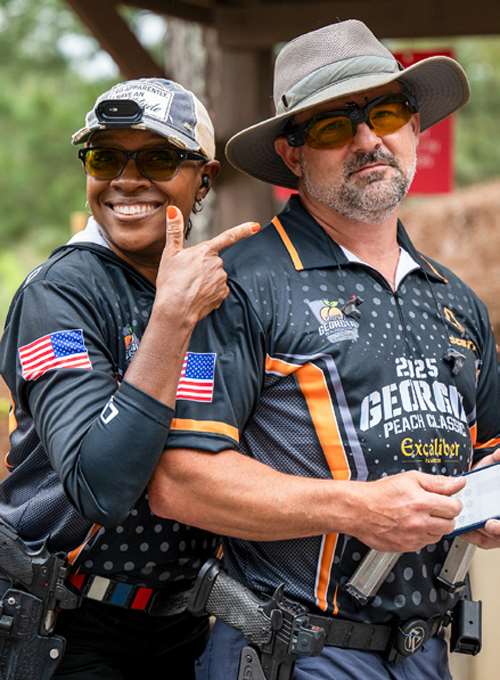
Although ambitious and demanding for the staff on Saturday (each stage had 20 squads pass through in one day), this format allowed the maximum number of shooters to compete while keeping the “shooter day” short enough to avoid a lunch break for the paid shooters or wearing them out.
There were seven different stage designers for this match, but the stages flowed together well and offered a fun combination of big sprawling long courses, plenty of steel targets and movers, a Fixed Time stage and a little bit of strong-hand only. Most of the stages had options and opportunities to blend positions. None of the stages punished iron sight shooters, and the race gun shooters had plenty of opportunity to shine.
While we had 11 disqualifications out of 300 shooters, most of the DQs were for 180-rule violations and uncontested. While some stages had more than one DQ, all of the DQs happened at a different part of the stages or for different reasons. There were no traps or DQ-happy range officer teams, and I strongly believe that all of the DQs were strictly shooter errors and not range officer influenced.
Although there were a few calibration calls and reshoots, there was only one instance of a reshoot due to improper reset. This was one of the first major matches that I have worked since the USPSA rule change allowing use of digital evidence in the appeal process. While most of the video we looked at was inconclusive, there was at least one instance of removing a penalty because of what we saw on the video.
THE SPONSORS
There were 23 sponsors at the match in three different categories: Title, Stage and Banner. Scott and Camille took great care to choose sponsors that align with the priorities and theme of the match. After all, a match is a reflection of the sponsors; and the sponsors are a reflection of the match. Aligning goals and match philosophy with partners and stakeholders at all levels matters.
THE FUTURE
Going forward, in 2026 the Georgia Peach Classic will also be the Georgia USPSA State Championship. Information on the match and links to photos and videos are at gapeachclassic.com. Registration for the 2026 match is scheduled to open on Black Friday (November 28, 2025), so mark your calendars—this match will sell out quickly.
Article from the July/August 2025 issue of USPSA’s magazine.













